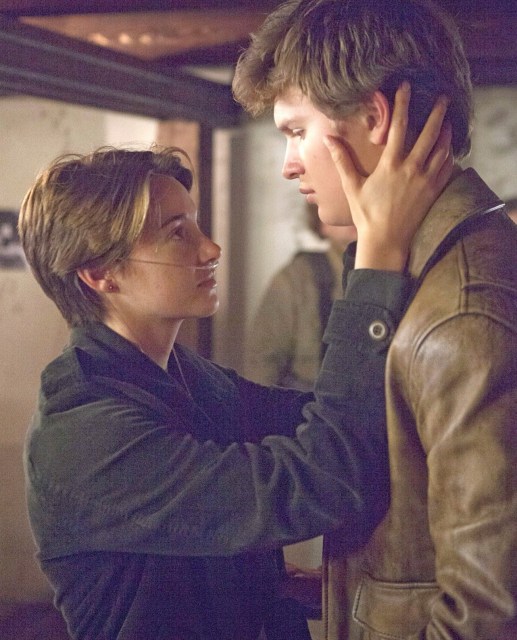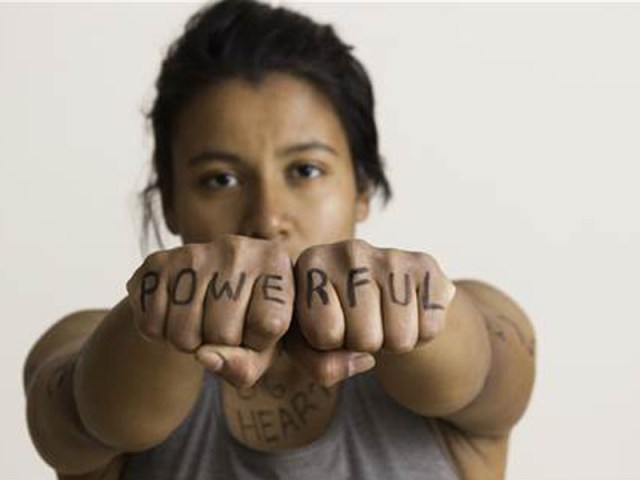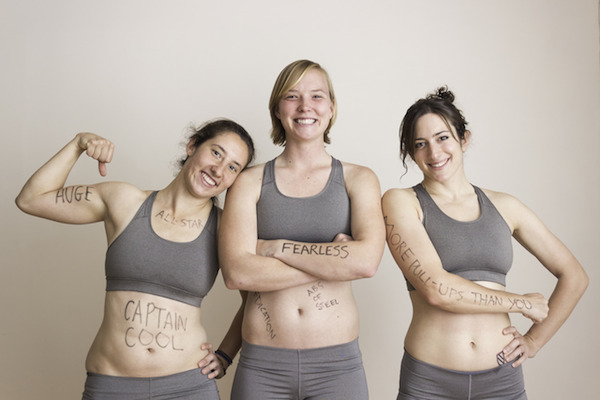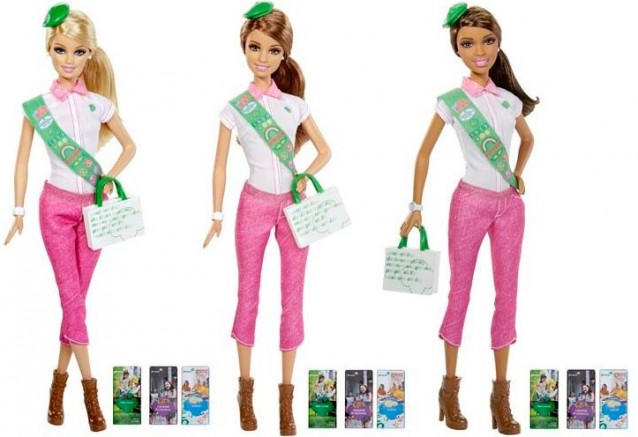Hello brave knights! This week I got my nose pierced and it totally wasn’t as scary as I thought it would be! Here’s the news we missed while I was conquering my fear of needles.
On Writers, Writing, and (Lack of) Freedom
+ Janet Mock has signed on as a contributing editor at Marie Claire. She’s written for the publication before and has previously served as an editor for People Magazine’s website, so her success in media isn’t exactly news. But she recently spoke out about how she wants to be more than Marie Claire’s “trans correspondent.”
“So to have a magazine say ‘No, we know that girls and women come from various walks of life, and you’re just on one path, but that doesn’t negate from the experience of what a woman is or who a woman is,’” she said, “I find that to be revolutionary.”
+ BuzzFeed has compiled 39 pieces of advice for writers of color.
I wish I had known when I started out that it was not my responsibility to correct an entire system that was not perhaps purposefully meant to alienate me in the singular so that I could have saved my energy for strategically fighting battles to get stories in the paper that were reflective of my abilities and talents without such a struggle. -Joshunda Sanders, Speechwriter

+ In Ethiopia, nine writers have been arrested and held as political prisoners for over 80 days.
The imprisonment of the nine writers, and charges against ten, is part of an Ethiopian story, as the name “Zone 9” suggests. At the same time, it’s part of a global assault against writing, all writing, under the guise of anti-terrorism. What was once particular to Gordimer’s South Africa or Ngugi’s Kenya or Paolo Freire’s Brazil or Angela Davis’ United States is now a coherent global regime. In that context, thinking of the ten writers charged with terrorism, thinking of Reeyot Alemu and so many other imprisoned writers, it’s time to ask, “Can pens still flow ink instead of blood?” Whose name today is hope?
What’s Happening in Hollywood?
+ According to GLAAD’s 2014 Studio Responsibility Index, Hollywood is failing in its representation of LGBT people.
The report, which maps the “quantity, quality and diversity of images” of LGBT people as seen in movies released by Hollywood’s seven largest studios each year, found that the motion picture industry “may be doing more harm than good” when it came to a global understanding of the LGBT community, GLAAD’s CEO and President Sarah Kate Ellis said in an email statement.
“These studios have the eyes and ears of millions of audience members, and should reflect the true fabric of our society rather than feed into the hatred and prejudice against LGBT people too often seen around the globe,” she added.
+ The Fault in Our Stars is a movie that is certainly far from perfect, but it does represent the intersections of disability and sexual pleasure.
Sexual pleasure can be a taboo subject in our society almost everywhere but in our entertainment, where it is arguably overdone. But even in our media, sex seems to be the sole privilege of young, white, single, and non-disabled people. The denial of sexual pleasure in media to anyone but this select group feeds back in the problem of underrepresentation. But the denial of sexual pleasure in our lives is a topic that affects our livelihoods.

Let’s Talk About Body Image
+ Plus-size teenager Samm Newman’s body-positive photos were removed from Instagram. This instance is part of a bigger picture of Instagram’s inconsistent enforcement of its community guidelines.
Instagram has a history of unevenly enforcing its nudity policy, singling out plus-size women or women who aren’t “sexy” for reprimand while letting everyone else slide. Not even two months ago, Instagram had to issue an apology just like this one after removing a butt selfieposted by Meghan Tonjes, a plus-size woman. Instagram’s response to her—”Our guidelines put limitations on nudity and mature content, but we recognize that we don’t always get it right. In this case, we made a mistake and have since restored the content”—only came after Tonjes posted a YouTube video, “Dear Instagram,” which got over 750,000 views:
+ At Black Girl Dangerous, Caleb Luna writes about “Being Fat, Brown Femme, Ugly, and Unloveable”
Under colonial constructions of beauty and desire, being fat and brown and queer and femme means being ugly. It means feeling unlovable, being unlovable, and no one disagreeing. Being fat and brown and colonized means to value, desire, and prioritize romantic love—a love that doesn’t want you, that will never have you, and to not know how to liberate yourself from the belly of that beast.
+ The Harvard women’s rugby team created a series of body-positive photos in which they wrote reminders on one another’s bodies of the ways in which they were beautiful, powerful and strong.
Loving one’s body is an inherently political act. Maintaining pride in having a body that is “too big,” “too small,” or “not ideal” is a political statement against the many voices that tell us our bodies are problematic. Mainstream culture normalizes the flawless bodies that dominate every kind of mass media, sending girls the message that only slender, tall bodies are beautiful.


The End of a Barbie World?
Barbie has had an ongoing, interesting relationship with queerness and queer people, and she’s been in the news quite a bit lately.
+ Barbie sales are decreasing, leading The Guardian to question whether the pink plastic empire is truly in decline.
+ Girl Scout Barbie, the newest iteration of the doll, is also causing some commotion.
At least two consumer advocacy groups want the organization to reconsider. For months, the Campaign for a Commercial-Free Childhood and the Center for a New American Dream have been encouraging Girl Scouts USA to break ties with the doll manufacturer, saying that Barbie is a “terrible role model” for young girls. The groups have also criticized the new Barbie patch, which is targeted at Daisies and Brownies under the age of eight, for making girls into “walking advertisements” for the doll.
“While Mattel and the Barbie brand benefit enormously from GSUSA’s endorsement, the partnership harms girls. In addition to encouraging sexualization, the Barbie brand idealizes a dangerously impossible body type,” reads a petition launched by the Campaign for a Commerical-Free Childhood, citing studies that have found the young girls who are exposed to Barbie tend to report more dissatisfaction with their bodies and wish they were thinner.

You Should Give!
+ Happy Birthday, Marsha! Is a film about the friendship of Marsha Johnson and Sylvia Rivera, two legendary trans women activists. Directed by Reina Gossett and Sasha Wortzel, the film gives much needed attention to these women’s stories.
When Marsha and Sylvia, self-proclaimed “street queens” – homeless, Black & Latina trans women – ignite the Stonewall Rebellion, they change LGBT politics forever. It’s a hot summer day in June, 1969. Marsha throws a party, but no one shows up. Meanwhile, Sylvia gets stoned and forgets the party after unsuccessfully introducing her lover to her family. Throughout the difficult day, the friends struggle with harassment and alienation before converging at the Stonewall Inn to finally celebrate Marsha’s birth. Unbeknownst to them, the NYPD has plans to raid the bar that night. Happy Birthday, Marsha! is the story of two brave best friends and the everyday decisions they made that changed the course of history.
+ The city of Detroit is facing extreme water shortages and shutoffs (more than 300,000 residents could be forced to go without water), so the Detroit Water Project is matching up donors with Detroit residents in need so that donors can contribute to the cost of their water bills. The hashtag #DetroitWater is being used to spread awareness of this issue.








Comments
“So to have a magazine say ‘No, we know that girls and women come from various walks of life, and you’re just on one path, but that doesn’t negate from the experience of what a woman is or who a woman is,’” she said, “I find that to be revolutionary.”
Wow… That’s amazing.
Emily Rios who plays an awesome lesbian character on “The Bridge” came out as lesbian herself in an interview on afterellen! Awesome! She’s had a lot of great roles from “Breaking Bad” to “Friday Night Lights”! I’m amazed autostraddle isn’t on this. Usually when a baddas lady comes out it’s a big deal. LOL And she’s a lesbian WOC too!
Not queer but another great movie abotu sex and disability is The Sessions…plus, you know Helen Hunt!
http://www.imdb.com/title/tt1866249/